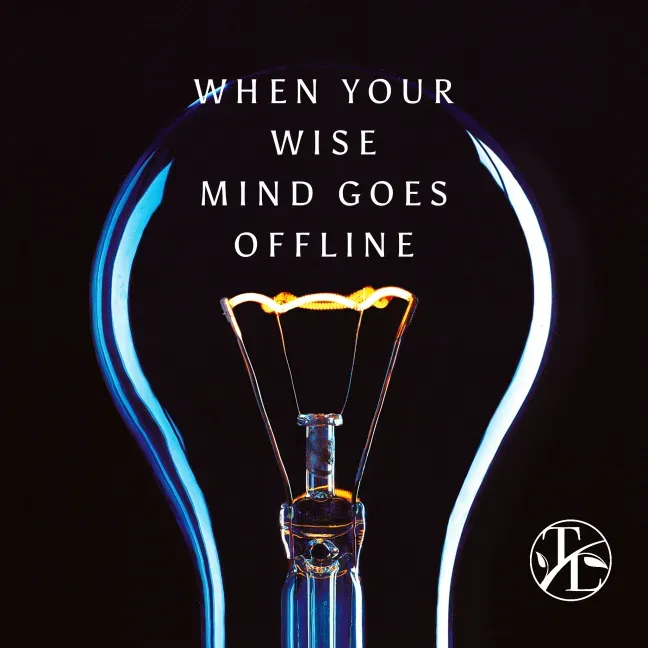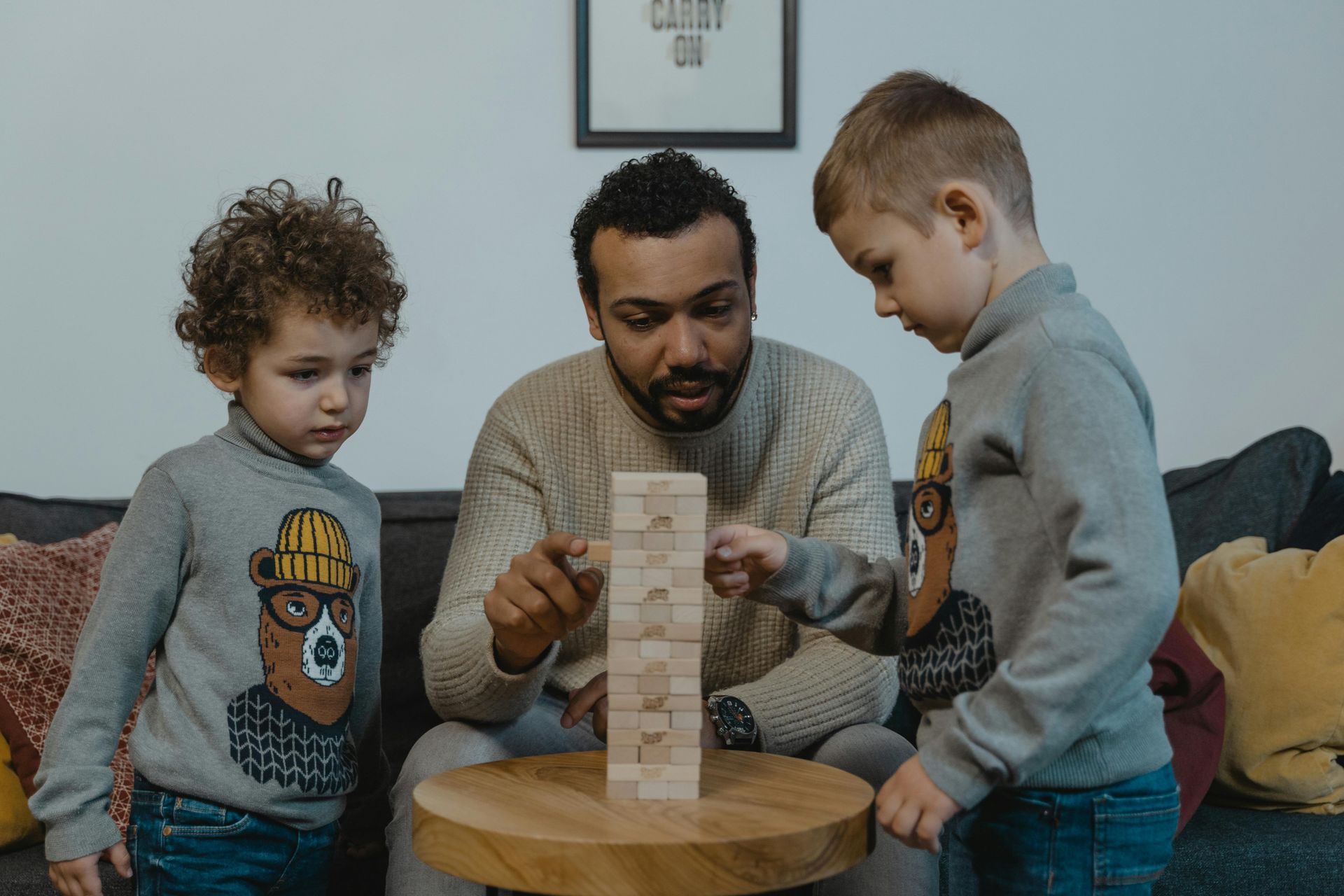When Your Wise Mind Goes Offline

“Wise Mind” is a term used in DBT (Dialectical Behavior Therapy) and it refers to the process of using your emotional mind, together with your reasonable mind to make decisions or take next best steps.
If we use just our emotions or just our logic, we lack the wisdom for the next best steps and may suffer the consequences in terms of a less than desirable outcome, either immediately or in the future.
What gets in the way of using our WISE MIND?
- Being over-tired.
- Being flooded with many or strong emotions.
- Forgetting or discounting the importance of emotion and not considering it.
- Forgetting or discounting the importance of reason and logic and not considering it.
- Drugs or alcohol.
- How you were raised to think and make decisions.
- Forgetting about looking at the big picture.
- Feeling pressured or rushed.
- Selfishness – I want what I want regardless of anyone’s feelings or what anyone thinks about it.
- Lack of experience.
One person’s experience…
Jane was feeling overwhelmed. There were overdue bills and she had lost some time from work due to illness. Her mom had just been moved to a senior living program, which she clearly expressed dissatisfaction about and Jane was feeling guilty and having a lot of emotions about her mom’s declining health. Jane’s high school age son was struggling academically and behaviorally and Jane and her husband were feeling conflict about how to address those issues.
One afternoon, Jane received a call from the school that her son has been caught vaping in the bathroom. She handled the call the best she could and after hanging up, she texted her husband that she was washing her hands of the whole situation with their son and, “You deal with it!” She then texted her brother, who had not been contributing equal support with their mom, and said, “I’m done! You deal with mom’s issues in the new program!” Jane then went out to her car and just sobbed. And sobbed. And sobbed.
What should Jane do next?
Jane’s “wise mind” has gone offline.
She has temporarily lost her ability to see the value of bringing together both reason and emotion. When we get flooded, we sometimes don’t even think of one side or the other. It is out of our awareness.
This issue of flooding seems to be the case with Jane. She is overwhelmed and then sharply triggered by one new piece of information.
Now, if Jane was raised by a mom or dad who frequently lost their temper, or ruled strictly, or cried easily and couldn’t take next steps, those things could contribute also.
If Jane were an emotional eater, or used drugs or alcohol, or had some other addictive behavior, that could also contribute to wise mind going offline. If she was vulnerable to other self-harm, such as cutting herself, and she escaped with those behaviors, that would also interfere with using her wise mind.
But with Jane, she’s simply overwhelmed.
Bringing Wise Mind Back Online
Jane actually deserves a good amount of credit here. While it would have been good to do it before sending the rapid fire text messages, going out to her car and having a good cry is very smart, even if she wasn’t doing it from her reasoning mind. There are many benefits to having a good cry, both emotionally and physiologically. Next, Jane would benefit from;
- A few minutes of breathing, listening to music or nature sounds, just being – trying to clear away thoughts and let emotions settle.
- Then, she could talk to herself… “Ok self, you’re ok. This is a moment. It will pass. What are the top issues and what do I need to do right now? I.e. go back into work? Decide what’s for dinner? Call and apologize to my husband and ask for support?
- Meanwhile – she should put her phone down, if she is now starting to get rapid fire texts from her brother and husband. A brief reply, “I’m sorry, I’m really struggling right now, I’ll call you ____ so we can talk about this.”
- Prioritize and describe issues, which helps take them out of the just emotion or just logic.
- Now that everything has been slowed down, Jane can feel more confident about her handling of the situation. She can ask for support. She can formulate next best steps.
- She can set aside the crisis once this has been done and focus on self care. Does she need a bubble bath, movie night, early bedtime, etc.
- If Jane has a therapist or close family or friends, she can connect with them calmly and say, “I’m really struggling, are you available to take a walk later this week and can I talk to you about some things I’m going through? Can I make an appointment?
We are all vulnerable to losing our wise mind abilities.
You’re really lucky if you were raised by parents who had their wise mind intact MOST of the time, because having wise mind modeled is the best way to develop wise mind thinking.
But if you didn’t have this advantage and struggle with strong emotion or rigid logic and have trouble blending them, practicing will help. What we practice, we get better at.




